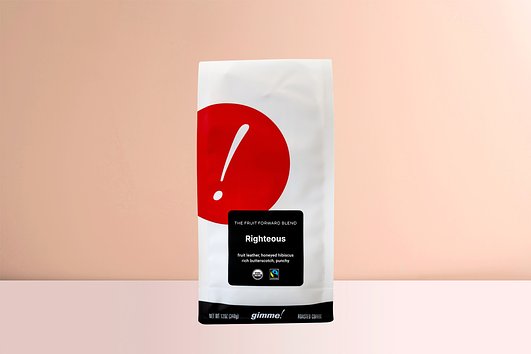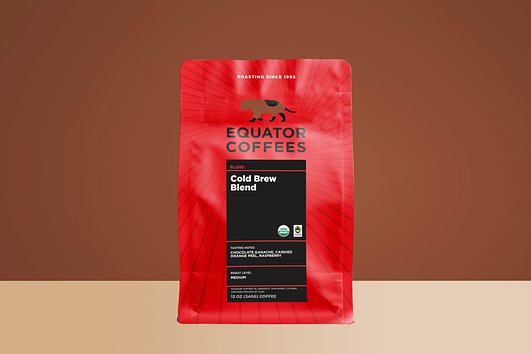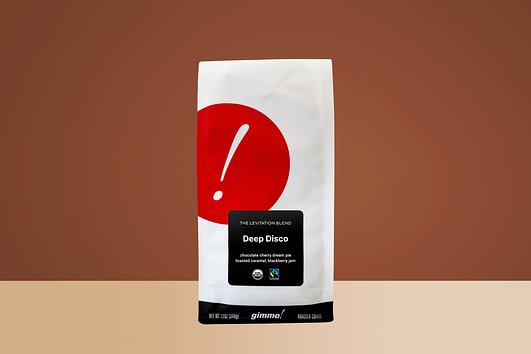What Is Fair Trade Coffee?
Matthew Berk
• April 05, 2021 — last updated June 14, 2021
Anyone who's strolled through the coffee section of a Whole Foods or other higher-end supermarket has been exposed to the language of what we call “industrial coffee marketing." Terms like “organic," “shade grown," and “fair trade” are product descriptors meant to make us feel better about what we’re buying. But what do they actually mean?
Read on to understand the differences between fair trade and direct trade coffee.

What Is Fair Trade Coffee?
The fair trade coffee movement is a complex knot of trading practices, social philosophies, labeling organizations, marketing tactics, and certification standards that seek to promote greater “equity” (fairness) in international trade of commodities such as coffee. These practices are generally applicable to developing countries, with an emphasis on the idea of sustainability.
In the coffee industry at large, fair trade standards are developed primarily by a cluster of four international trade networks, with certification determined by an entirely separate group. In the U.S. specifically, a company called Fair Trade USA is the dominant certifier of “fair trade” coffee, and sellers of coffee can pay them for the right to label their products as fair trade, assuming the standards (cost of labor, sustainable practices, minimum pricing, and the like) have been met for that particular coffee.
The strength of the label, we believe, can be boiled down to the mental image we as consumers paint when we see a fair trade label; we pay a little extra as an individual purchaser, and our belief is that this is reflected in better economic treatment of everyone in the supply chain, all the way down to the farmer who tilled the soil. Of course, the truth is infinitely more complex.
For example, critics argue that in some cases, exporters may be guaranteed a “fair” price, but neither the farms they represent nor their laborers necessarily benefit. Other critics point out that the economic benefits inherent in the idea of fair trade are largely dissipated through the intricate supply chain of commodity coffee trade, with large corporations seeing the bulk of the advantage. Still, others see fair trade as a marketing practice whose economic focus may or may not have any relevant impact on the actual growers of the coffee.
In short, fair trade coffee practices are backstopped by a paid certification program, and are generally intended to bolster the price of a roasted coffee at market by playing on our guilt over the state of agricultural economics throughout the world. That sounds negative, but if you really want your choice of coffee to help farmers directly, look instead for roasters who have direct trade relationships with farmers.
Why Direct Trade Coffee Matters
In the world of small-batch, specialty coffee, the emphasis is on practicing what’s known as “direct trade." What this means is that roasters regularly visit with and establish long-term, direct trading partnerships with the actual farmers from whom they source coffee. There may be other parties involved with the export, transport, storage or other aspects of coffee handling, but the agreement is made between roaster and farm directly. Sebastian Simsch, founder of Seattle Coffee Works, points out three key aspects of direct trade:
- Direct trade occurs when “farmer and roaster work together to improve the quality of the coffee that gets to your cup." In other words, the interests of the consumer, the roaster, and the grower are aligned. Middle men can fend for themselves.
- Direct trade is a business model and not a charity. “As the quality of the coffee improves, the price for the coffee goes up. The price goes up because there will be always a limited supply of truly great coffee, and better coffee generates more demand. All three—grower, roaster, and discerning consumer—win.”
- Direct trade protects both roaster and farmer from the “vast and speculative fluctuations in the global coffee commodity market, giving both grower and roaster more predictability and security."
Almost all of the roasters with whom we work regularly spend their time visiting their partners in coffee-growing countries like Guatemala and Ethiopia. Their direct trade efforts allow them to work directly with growers to make the best coffee possible.
If you want the best cup of coffee, look for small-batch roasters who take pride in directly sourcing their coffee. While fair trade coffee labels are a great place to start in the supermarket, if you want the highest quality coffee—behind whose genesis the grower is assured fair economic standing—look for small roasters who work with growers on a direct trade basis.
We want to help you make better coffee at home. Our recommendations are our own, and never sponsored. If you see something you love and buy it through our links, we may receive an affiliate commission (thanks for that!).
Coffees You Might Like

Leftist Espresso Blend - Certified Fairtrade, Organic
Cherry, Toffee, Chocolate
$21.95

Righteous Espresso Blend - Certified Fairtrade, Organic
Butterscotch, Dried Fruit, Hibiscus
$21.95

Cold Brew Blend Fair Trade Organic
Raspberry, Orange Peel, Maple Syrup
$21.45

Deep Disco Blend - Certified Fairtrade, Organic
Caramel, Cherry, Blackberry
$21.95


